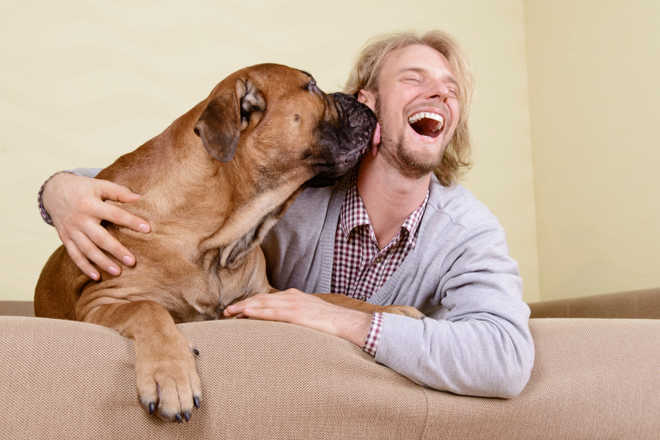
Thinkstock photo
London, September 30
Ever thought why dogs appear to be more social—a typical human trait—than all other animals? It is because the genes that influence human behaviour also affects the social ability of dogs, a study has found.
The dog is the oldest domesticated animal and during this period they have developed unique abilities to communicate and cooperate with humans.
The study found a relationship between five different genes and the ability of dogs to interact with humans. Out of these, four showed similarities to certain conditions in humans, researchers said.
“We found a clear association with DNA-regions containing five different interesting genes,” said lead author Mia Persson, doctoral student at Linkoping University in Sweden.
The study found that since the time of the domestication of dogs began, extreme changes took place in their social behaviour. Facing a difficult task, most dogs seek contact with a human, apparently to solicit help.
In the study, the researchers wanted to look at the behaviour of dogs by presenting them with an unsolvable problem and thus included 500 beagles.
The task was to open a tight lid to obtain a treat. The scientists used video recordings to quantify the willingness of the dogs to seek physical contact with a person in the room when the problem turned out to be too difficult.
The DNA of more than 200 beagles were also studied.
By using a method called genome-wide association study (GWAS), the researchers examined a large number of genetic variants throughout the genome.
The findings showed the dogs with contact-seeking behaviour more often carried certain genetic variants.
“If the associations found can be confirmed in other dog breeds it is possible that dog behaviour also can help us to better understand social disorders in humans,” added Per Jensen, Professor at Linkoping University.
The results were published in the journal Scientific Reports. — IANS



























